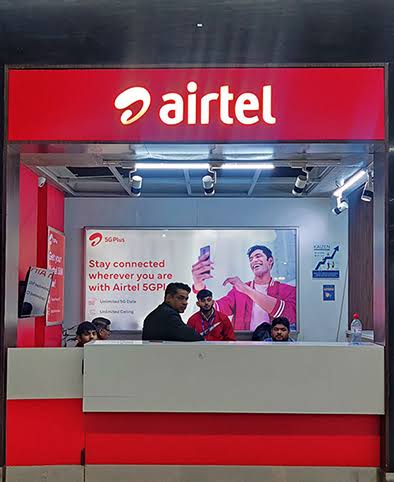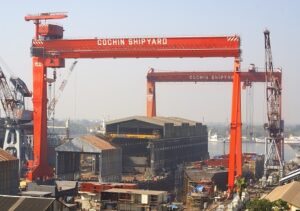
In a significant development in India’s telecom sector, Bharti Airtel has followed Vodafone Idea’s lead by approaching the Supreme Court to seek relief from the hefty Adjusted Gross Revenue (AGR) dues. This move comes just days after Vodafone Idea, grappling with substantial debt, requested a waiver of over ₹34,745 crore in interest and penalties tied to AGR dues. Both telecom giants are now urging the court to provide equitable relief, emphasizing the financial strain these dues impose on the industry’s survival and competitiveness.
What Are AGR Dues and Why Are They a Concern?
Adjusted Gross Revenue (AGR) dues stem from a long-standing dispute between telecom operators and the Department of Telecommunications (DoT). The issue revolves around the definition of AGR, which determines the license fees and spectrum usage charges telecom companies must pay to the government. A 2019 Supreme Court ruling mandated that non-core revenues, such as income from non-telecom activities, be included in AGR calculations, significantly increasing the financial burden on operators like Bharti Airtel and Vodafone Idea.
For Bharti Airtel, the DoT estimated AGR dues at approximately ₹43,980 crore, while the company’s own estimate was much lower at ₹13,004 crore. Vodafone Idea faces an even steeper liability, with dues pegged at ₹70,300 crore. The inclusion of interest, penalties, and interest on penalties has further inflated these amounts, with nearly 75% of the dues comprising these additional charges. This financial strain threatens the telecom sector’s ability to invest in critical infrastructure, such as 5G rollout, and maintain competitive operations.
Airtel’s Plea for Equitable Relief
Bharti Airtel, along with its subsidiary Bharti Hexacom, has filed a plea in the Supreme Court seeking a waiver of interest, penalties, and interest on penalties, which amount to ₹34,745 crore. The company argues that such relief is essential for the telecom sector’s long-term sustainability. Airtel’s petition echoes Vodafone Idea’s stance, highlighting that the AGR dues have severely impacted their ability to compete in the highly competitive Indian telecom market, dominated by players like Reliance Jio.
Airtel’s plea emphasizes the need for “equitable” treatment, pointing out that the financial burden disproportionately affects operators already struggling with debt and operational costs. The company has also referenced the government’s ongoing discussions about potential relief measures, such as waiving 50% of interest and 100% of penalties, which could reduce Airtel’s liability by approximately ₹38,000 crore and Vodafone Idea’s by ₹52,000 crore.
The Bigger Picture: Telecom Sector’s Survival at Stake
The AGR dues saga has been a persistent challenge for India’s telecom industry, which is critical to the country’s digital economy. The Supreme Court’s earlier rulings, including the dismissal of curative petitions in 2024 and review petitions in 2025, have left telecom operators with limited legal recourse. These decisions reaffirmed the 2019 judgment, which upheld the DoT’s calculations and rejected claims of computational errors.
The repeated setbacks have pushed companies like Vodafone Idea to the brink, with its shares plummeting 15-19% after the 2024 curative petition dismissal. Bharti Airtel, while financially stronger, is also feeling the pressure, as evidenced by a decline in its share price following the February 2025 ruling. The telecom giants are now banking on either judicial relief or government intervention to alleviate the burden.
Analysts warn that without relief, the industry could consolidate further, potentially leading to a duopoly dominated by Reliance Jio and Bharti Airtel. A strong Vodafone Idea is crucial for maintaining a competitive three-player market, which benefits consumers through better services and pricing. Recent tariff hikes and equity fundraising have provided some breathing room for Vodafone Idea, but the AGR dues remain a significant hurdle.
Government’s Role and Potential Relief
Reports suggest that the Indian government is considering a proposal to waive 50% of interest and 100% of penalties on AGR dues, offering potential relief worth over ₹1 lakh crore to the telecom sector. Such a move would significantly ease the financial strain on Airtel and Vodafone Idea, enabling them to focus on network expansion and 5G deployment. However, until a concrete decision is made, the uncertainty continues to weigh on the industry.
The Supreme Court’s response to Airtel’s plea will be closely watched, as it could set a precedent for how AGR dues are handled moving forward. A favorable ruling or government relief could bolster investor confidence and stabilize the telecom sector, which is vital for India’s digital infrastructure.
Conclusion: A Critical Juncture for Indian Telecom
Bharti Airtel’s decision to join Vodafone Idea in seeking AGR dues relief underscores the gravity of the issue facing India’s telecom industry. As both companies await the Supreme Court’s verdict, the outcome will have far-reaching implications for their financial health, market dynamics, and the broader digital economy. With the government contemplating relief measures, there is hope for a resolution that balances the interests of telecom operators and the public exchequer.
For now, stakeholders, investors, and consumers alike are keeping a close eye on this unfolding saga, which could shape the future of India’s telecom landscape. Stay tuned to The ExpertSK blog for updates as this critical case progresses.




